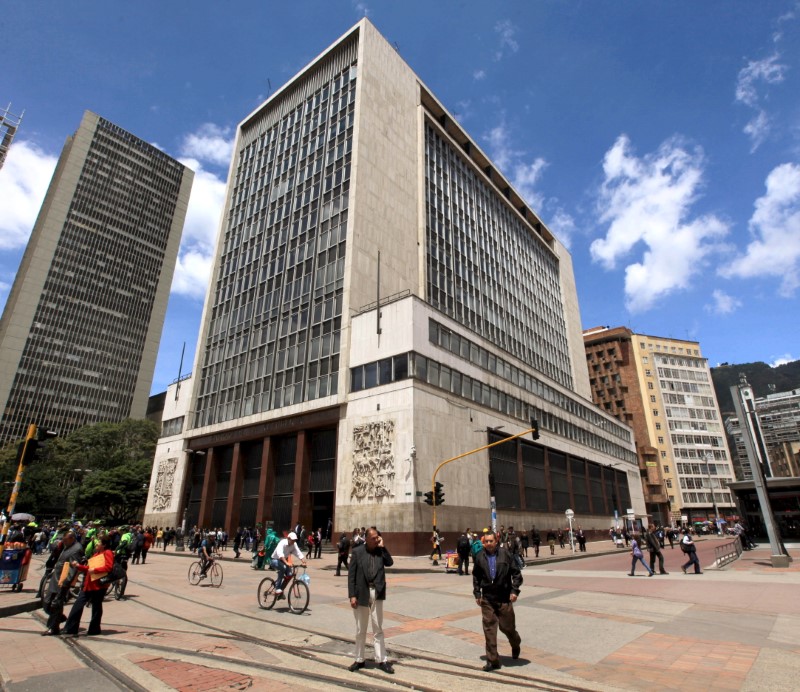By Nelson Bocanegra and Helen Murphy
BOGOTA (Reuters) - Colombia's central bank unexpectedly cut its key lending rate on Friday by 50 basis points in an effort to boost a sluggish economy, though policymakers were divided over the size of the reduction as inflation remained above target.
The seven-member board reduced the rate to 5.75 percent, meeting expectations of nine of 22 analysts in a Reuters survey published last week. The other 13 had predicted a cut of 25 basis points.
The board's vote was split, with four calling for the 50 basis point cut and the other three for a smaller reduction.
It was the sixth reduction in an easing cycle intended to bolster Latin America's fourth-largest economy, hit hard by the global fall in prices for crude oil as it struggles with high inflation.
Bank chief Juan Jose Echavarria, reading from a statement, said the board took the decision after considering the "growing weakness of economic activity and the risk of a slowdown beyond that compatible with the deterioration in the dynamics of income caused by the fall in oil prices."
They also discussed how recent economic indicators show that there is "significant increase" in excess capacity of the economy.
There was some uncertainty expressed over how quickly inflation would come down to the ideal level of 3 percent, the statement said.
Echavarria indicated earlier this month the rate could come down to as low as 5.25 percent by yearend, but the board has not been unanimous in a decision since late last year.
While policymakers are aware of the need to lower the cost of money to encourage consumer spending, it must ensure the decision does not end up stimulating inflation, which remains above the target range of 2 percent to 4 percent. The bank expects the economy to expand about 1.8 percent in 2017.
"We won't strangle the economy to achieve 3 percent now, we will get there at some point in 2018," Echavarria told reporters. He said the biggest complication to economic growth was now.
Inflation expectations for the close of this year were up to 4.30 percent in the Reuters poll. Annual inflation in May reached 4.37 percent.

The bank warned that the decline in food prices that has helped improve inflation - close to 9 percent a year ago - could be reversed, meaning consumer prices could rise during the second half.